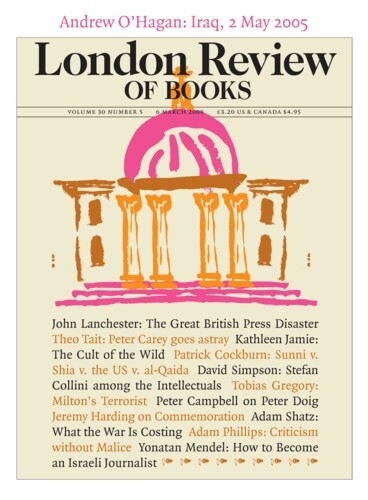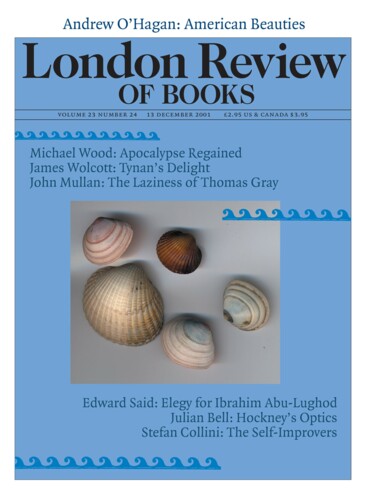Stefan Collini
Stefan Collini is the author of Absent Minds: Intellectuals in Britain, What Are Universities For? and The Nostalgic Imagination: History in English Criticism. His edition of Orwell’s Selected Essays was published in 2021. He is an emeritus professor of intellectual history and English literature at Cambridge.
What MPs Read
13 December 2001
Podcasts & Videos
Anthony Wilks's film traces the connections between the events of Eric Hobsbawm’s life and the history he told, from his teenage years in Germany and his communist membership, to the jazz clubs of 1950s...
Early and Late Kermode
Stefan Collini, Mary-Kay Wilmers, Thomas Jones and Andrew O’Hagan
Stefan Collini talks to Thomas Jones about the life and work of Frank Kermode, and Mary-Kay Wilmers remembers him as a contributor to the LRB.
Pieces about Stefan Collini in the LRB
The Terrifying Vrooom: Empsonising
Colin Burrow, 15 July 2021
Reading an Empson essay is like being taken for a drive by an eccentric uncle in a terrifyingly powerful old banger. There are disturbing stains on the upholstery and an alarming whiff of whisky in the...
Is It Glamorous? Stefan Collini among the Intellectuals
David Simpson, 6 March 2008
George Orwell is commonly invoked as the ideal role model for the intellectual: feisty, independent, outspoken and contrarian, active in the public sphere, and famous. So it’s a surprise to...
Athenian View
Michael Brock, 12 March 1992
In seven of the nine chapters in this fine book Dr Collini depicts the denizens of the Athenaeum in its great days. T.H. Huxley, having left his umbrella at Matthew Arnold’s, asks his...
Burrinchini’s Spectre
Peter Clarke, 19 January 1984
Time was when Clio had a seamless garment: but that was before the division of labour set in. Prefixless history is now condescendingly thought of as ‘straight’ history and her...
Read anywhere with the London Review of Books app, available now from the App Store for Apple devices, Google Play for Android devices and Amazon for your Kindle Fire.
Sign up to our newsletter
For highlights from the latest issue, our archive and the blog, as well as news, events and exclusive promotions.


